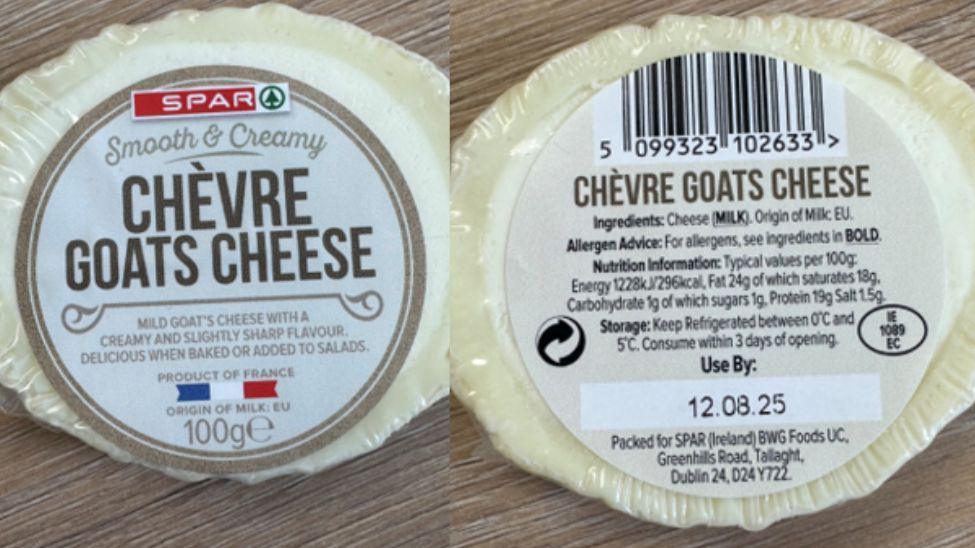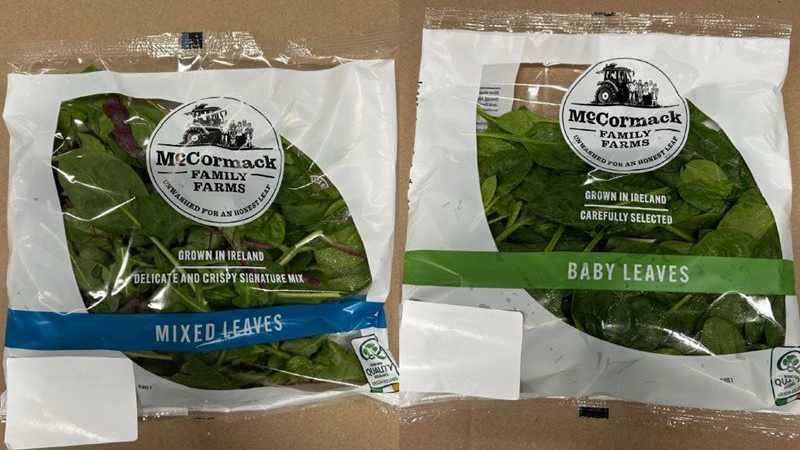Goats cheese sold in Spar recalled over listeria concerns

The 100g sized pack has a use by date of 12 August
- Published
Goats cheese sold in Spar shops across Northern Ireland has been recalled due to the potential presence of listeria monocytogenes.
The affected cheese is a batch of Spar Chèvre Goats Cheese supplied by Horgan's Delicatessen.
The 100g sized pack has a use by date of 12 August.
The Food Safety Authority (FSA) in Northern Ireland has said the implicated batches were distributed to both Northern Ireland and the Republic of Ireland.
The latest recall comes after some potted coriander plants and hummus products, supplied by O'Hanlon Herbs, were recalled from several supermarkets, including Tesco, Dunnes Stores, Aldi, Lidl, Marks & Spencer and SuperValu.
At the time of that recall, Neil Johnston, director of the Northern Ireland Retail Consortium, warned that the potential health risks posed by possibly contaminated products must not be underestimated.
"People who are immunocompromised run the risk of getting seriously ill, so everybody needs to take notice," he said.
A batch of Mallon's light pork sausages have also been recalled in the Republic of Ireland due to salmonella.
The six-pack of sausages have a past use by date of 31 July but the FSA advises consumers in the Republic of Ireland should check their freezers for implicated batches.
What is listeria?
Listeria infection is an illness caused by bacteria that can spread through food.
Another name for the illness is listeriosis.
It can be very serious for pregnant women, babies, people over the age of 65 and those with weakened immune systems.
Symptoms of listeria monocytogenes infection can include mild flu-like symptoms or gastrointestinal symptoms such as nausea, vomiting and diarrhoea.
In rare cases, the infection can become more severe, leading to serious complications.
The incubation period - the time between initial infection and the first appearance of symptoms - averages about three weeks, but can range from three to 70 days.
Related topics
- Published6 August
- Published28 July
